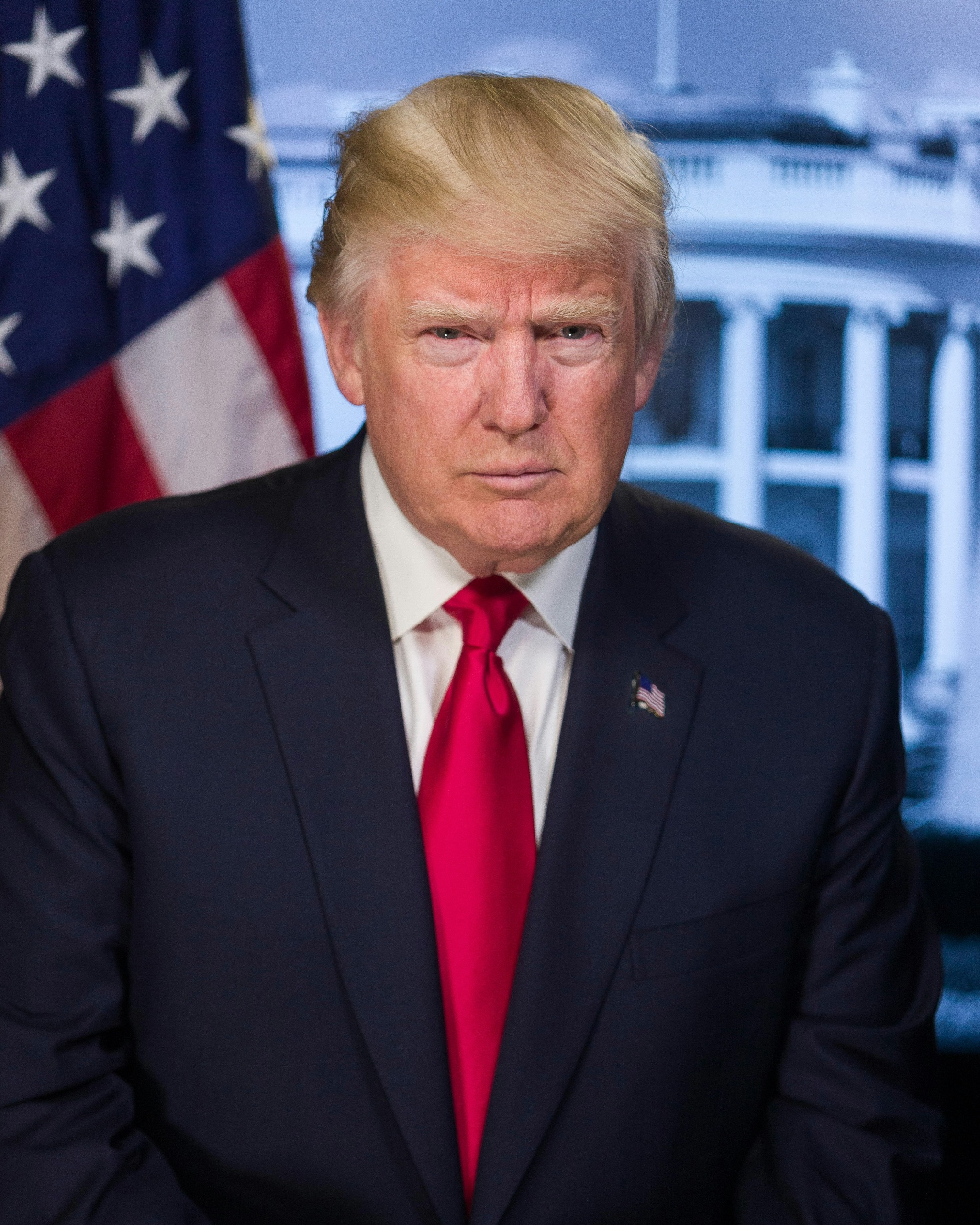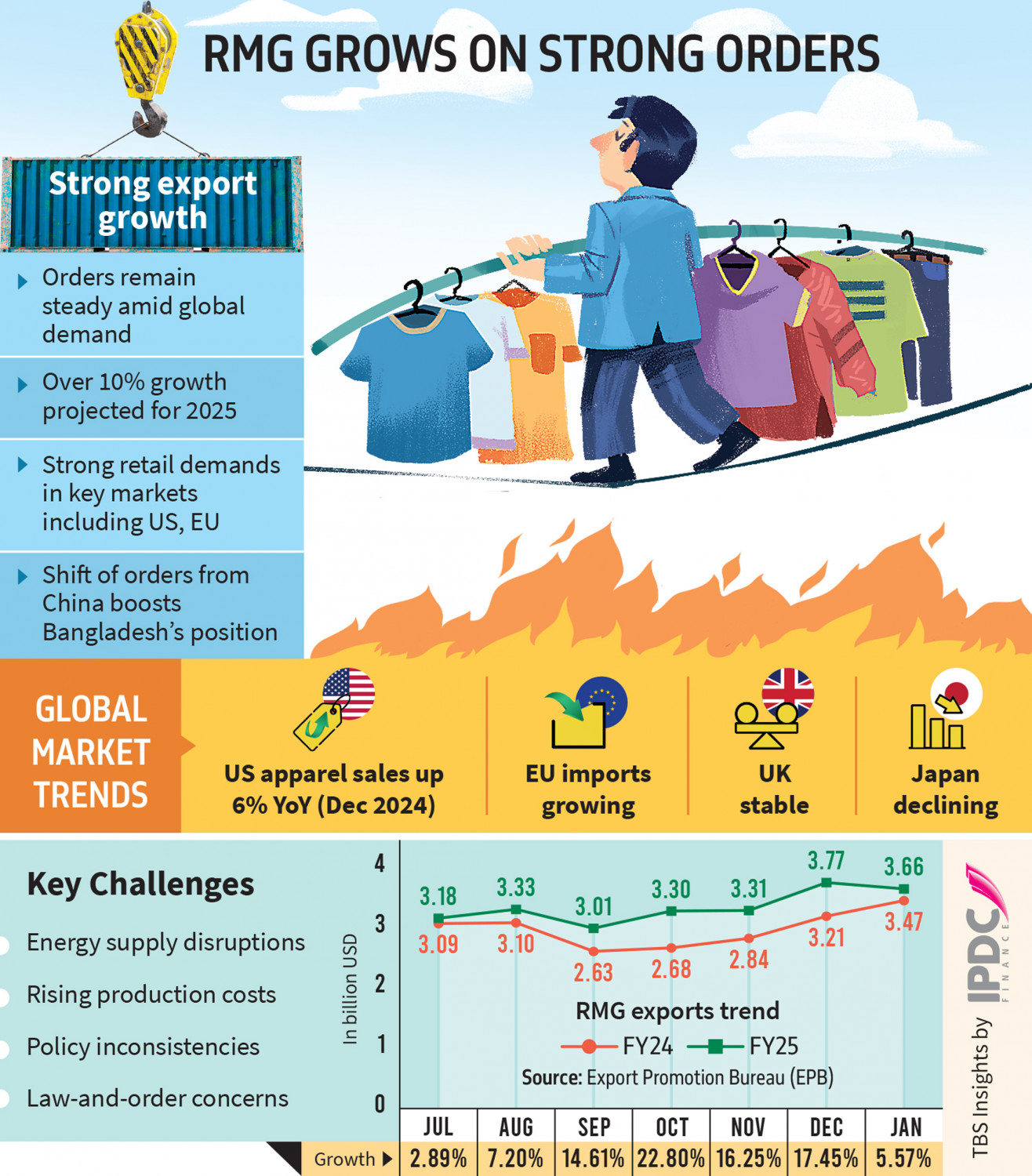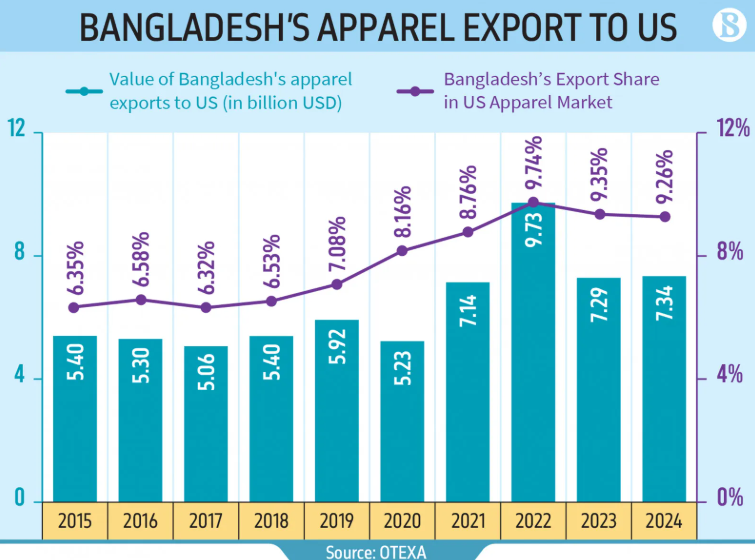The latest round of tariff escalations proposed by former U.S. President Donald Trump, if he returns to office, is expected to shake up global trade dynamics. Among the countries that stand to benefit from this shift is Bangladesh, particularly in the readymade garment (RMG) sector. As the U.S. considers imposing higher tariffs on Chinese imports, Bangladesh could seize the opportunity to expand its market share.
A Shift in Global Sourcing
If Trump enforces stricter tariffs on Chinese goods, many U.S. brands and retailers will be compelled to shift their sourcing strategies. Bangladesh, as the second-largest apparel exporter in the world, is well-positioned to absorb a portion of the orders redirected from China. With competitive pricing, a well-established supply chain, and growing production capabilities, Bangladeshi manufacturers could see an increase in orders, similar to the trend observed during Trump’s first presidency.
Bangladesh’s Competitive Advantage
Several factors make Bangladesh a strong candidate to capitalize on this shift:
- Cost-Effective Production: The country’s relatively lower labor costs provide an edge in price-sensitive global markets.
- Diversification of Products: Bangladeshi factories have moved beyond basic garments, producing higher-value apparel to meet evolving demand.
- GSP and Trade Relations: While Bangladesh currently does not enjoy Generalized System of Preferences (GSP) benefits in the U.S., its stable trade relations and reputation as a reliable supplier keep it in the consideration of major U.S. buyers.
Challenges and Considerations
While the potential benefits are significant, there are challenges to address:
- Energy and Infrastructure: To handle increased demand, Bangladesh must ensure uninterrupted power supply and improve logistics efficiency.
- Labor and Compliance: Maintaining ethical production standards and labor compliance will be crucial in securing long-term partnerships.
- Policy Adaptations: The government may need to adopt proactive policies to enhance competitiveness and facilitate smoother trade operations.
Outlook for the Future
The global trade landscape is shifting, and Bangladesh has a unique opportunity to solidify its position as a key supplier to the U.S. market. If U.S. tariffs on Chinese goods rise, Bangladesh’s RMG sector could experience a surge in export orders. However, to fully capitalize on this opportunity, strategic planning, investment in infrastructure, and strong trade policies will be necessary.
Source: The Business Standard



